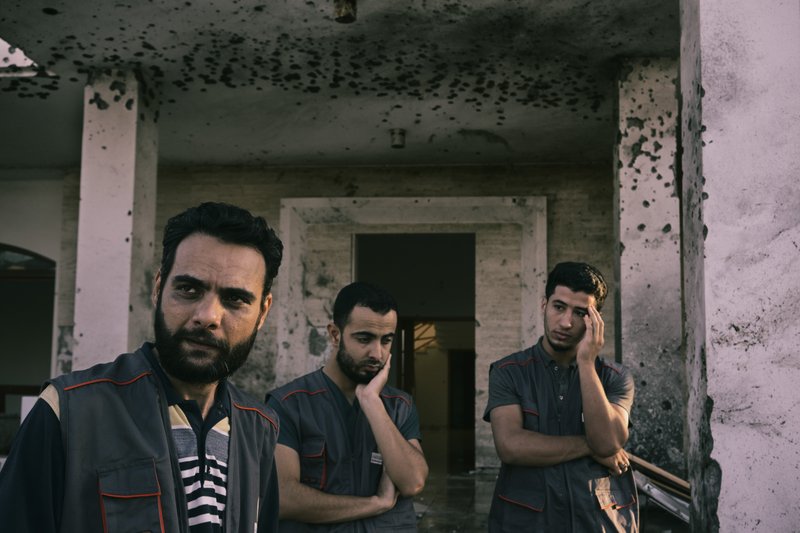CAIRO -- One year after an offensive was launched against the Libyan capital Tripoli, Libya's war is intensifying, and hundreds of thousands of civilians are besieged amid increased shelling and massive water and electricity cuts.
Hospitals are being targeted just as the coronavirus is threatening an already shattered health system.
The United Nations, the United States and other countries have pleaded with the warring sides for a "humanitarian pause" to help prevent the spread of the virus. Instead, both sides appear to be determined to take advantage of the international focus on the pandemic and try to gain more territory. After initially agreeing to the pause, the warring sides returned to combat within days.
[CORONAVIRUS: Click here for our complete coverage » arkansasonline.com/coronavirus]
The escalation in violence -- the worst since the 2011 Arab Spring revolts and NATO intervention that toppled dictator Moammar Gadhafi -- is being fueled in part by outside powers, which continue to supply weapons and mercenaries, despite a U.N. arms embargo
"The distraction associated with covid-19 has undeniably exacerbated the escalation," said Jalel Harchaoui, a Libya analyst at the Clingendael Institute in The Hague. "There clearly is no concern or worry about a potential condemnation on the international stage."
On one side of the conflict is the U.N.-installed Tripoli government, which is supported by a constellation of militias as well as Turkey and several other countries. Battling them is Khalifa Hifter, a dual U.S.-Libyan citizen who lived for years in Virginia and is loyal to a parallel government in the east of the country. He is backed by the United Arab Emirates, Egypt and Russia, among other nations.
Clashes break out nearly every day. At least three residential neighborhoods in Tripoli recently came under heavy shelling and artillery fire, forcing more than 3,700 civilians to flee their homes, according to the United Nations. The mayor of a nearby town, who is considered a Hifter loyalist, shut off the water supply to the capital's more than 2 million people.
Meanwhile, attacks by armed drones supplied by Turkey have also intensified, striking supply lines and one of Hifter's command centers and killing one of his senior military commanders, according to officials from both sides.
The increasing violence is raising alarms within the United Nations and humanitarian agencies. There are now 24 confirmed cases of the coronavirus and one death. Authorities in both the east and west of the country have stopped flights from entering or leaving and borders have been closed.
Libya's health system has been hit hard by the war. As of last month, 27 health facilities have been damaged, including 14 health facilities that have been closed, according to the U.N. An additional 23 are at risk of closure because of shifting lines of conflict, U.N. officials say.
There's a severe lack of specialized medical staff and equipment to deal with the spread of any disease, let alone a coronavirus pandemic. Isolation units, lab reagent detection kits, personal protective equipment and trained health-care workers are lacking, U.N. officials say.
"People have somehow gotten used to the war, but are genuinely scared about what will happen with coronavirus," said Liam Kelly, country director for the Danish Refugee Council. "I think this is a mixture of fear of the unknown, but also fear of the known lack of capacity in the health system to deal with an outbreak like this."
Al Khadra Hospital, one of Tripoli's largest medical facilities, shut down last week after three days of shelling that caused damage and injured a medical worker. The 400-bed hospital had been tapped to treat coronavirus patients.
"This is a clear violation of international humanitarian law," Yacoub El Hillo, the United Nations' humanitarian coordinator for Libya, said last week after the first attack on the hospital. "This senseless escalation must stop so that health authorities and aid agencies can respond to covid-19 and continue reaching people in need of urgent humanitarian assistance."
A Section on 04/14/2020
